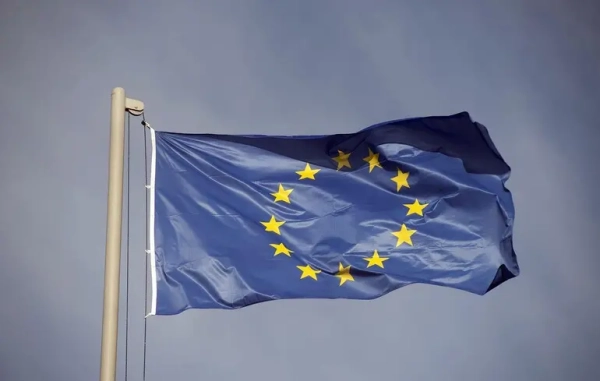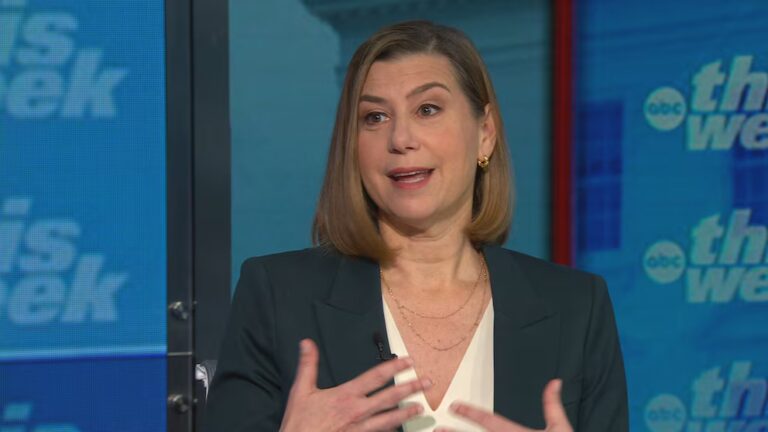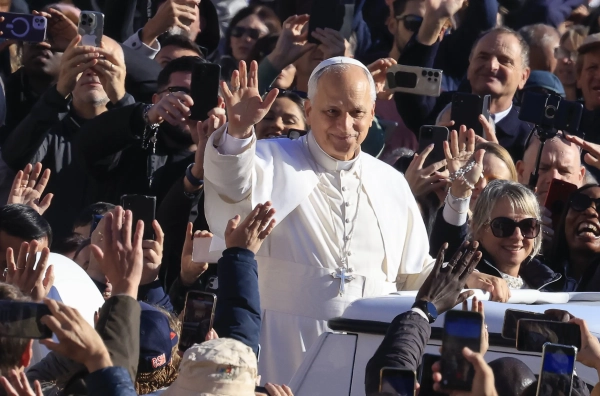Each of Donald Trump's three indictments — the latest of which came on Tuesday — have landed like thunderclaps: massive, booming disruptions to the news cycle and immediate additions to historical records.
Yet for all that noise, and how unprecedented the mounting charges against the former president are, they have so far been received in utterly familiar ways. Trump claims he is being unjustly targeted, as he did again on Tuesday, and he continues to drive conversations and dominate early primary polls in a political world remade by his rules of revenge and grievance.
The Republican front-runner now faces a third set of felony indictments — this time connected to his push to overturn his 2020 election defeat, with searing images of Jan. 6 a reminder of how close forces aligned with his interests came to succeeding.
With each new criminal case, the severity and extent of Trump's legal woes come into sharper focus.
And with each new criminal case, the GOP primary more resembles a race for second place. With a few notable exceptions — as seen in his former Vice President Mike Pence's denunciation on Tuesday — Trump's rivals aren't making the cases against him into campaign issues, while conservative voters rally behind, rather than reject, the former president.
The collective hope of the Republicans who want to move on from Trump is that the accumulation of baggage and distractions will drive the base to look for a Trump-friendly alternative — but always at some point in the future, over the horizon and before Trump really gets rolling in the primaries.
"Candidates have to push the Trump fatigue thing, but that's not what we're seeing," said Doug Heye, a veteran Republican strategist and a former Republican National Committee official. "There's a hesitancy to go after Trump in any real kind of way. They're not really criticizing him."
That's how other candidates-in-waiting reacted last summer, when FBI agents searched Trump's home in Florida, retrieving classified government documents that they said he had refused to return. That's how the emerging field approached the matter in late March, when he was indicted in New York City in connection with a hush-money scheme; in June, when he was indicted in Florida over his handling of classified by documents; and this week, when he was indicted again by the special counsel, this time in the nation's capital.
Trump has denied all wrongdoing and claims persecution.
He pleaded not guilty in the New York City and Florida cases and is set to be back in court later this week for his third indictment. His campaign said in a statement on Tuesday that he "will not be deterred" by "disgraceful" prosecutions.
Florida Gov. Ron DeSantis, still by far the top-polling Republican candidate not named Trump, said in a statement on social media on Tuesday that he hadn't yet read the indictment but nonetheless echoed Trump's claims of a "weaponized" Department of Justice, which prosecutors reject.
Indeed, few of his challengers — even those who witnessed the atrocities of Jan. 6 firsthand — expect the latest charges will do much to change the primary campaign any more than the previous two rounds have.
A strategist for a rival GOP campaign, speaking on condition of anonymity, was blunt.
"One would think that at some point, Republicans might be like, 'This isn't a good idea, going with a guy who could end up in jail,'" this person told ABC News ahead of the latest indictment news. "But we will see."

Former President Donald Trump enters Erie Insurance Arena for a political rally while campaigning for the GOP nomination in the 2024 election, July 29, 2023 in Erie, Pa.Jeff Swensen/Getty Images, FILE
Trump has roughly a dozen notable opponents for the GOP nomination, and we're now closer to next year's Iowa caucuses than last year's midterm elections. His main adversaries in the party, though, have been pulling their punches while keeping their fingers crossed that, at some point, somehow, enough Republican voters will sour enough on him even though they haven't in sufficient numbers to date.
Several GOP candidates have effectively adopted Trump's own framing — railing against "witch hunts" and politically motivated prosecutions — in a manner that could make Trump even harder to defeat, according to Heye, the GOP strategist.
In almost any reading of recent polls, Trump is stronger than he was before any of the criminal charges he now faces were filed.
Most of the other Republican hopefuls have had sharper words for the Biden Justice Department than for the candidate they are purportedly trying to defeat in the primaries. DeSantis said in a recent interview that Jan. 6 was "not an insurrection," despite the armed uprising that sent lawmakers fleeing, and he blamed the media for pushing the idea that it was part of a plot to "somehow overthrow the government."
South Carolina Sen. Tim Scott, who was at the Capitol in his official capacity on Jan. 6, has said he would "only hold responsible the very people who threatened my life" and said he does not put Trump in that category. He responded to previous Trump indictments by saying the Justice Department was seeking to take down political enemies.
Not so, according to special counsel Jack Smith, the independent prosecutor overseeing the federal cases against Trump. "The indictment was issued by a grand jury of citizens here in the District of Columbia and it sets forth the crimes charged in detail," Smith said on Tuesday. "I encourage everyone to read it in full."
Pence, who resisted Trump's entreaties to overturn the election and who endured chants of "hang Mike Pence" from rioters at the Capitol, said in advance of the third indictment that "while his words were reckless, based on what I know, I am not yet convinced that they were criminal."
In a subsequent statement, he reiterated his criticism of Trump's character while noting Trump is presumed innocent. "Today's indictment serves as an important reminder: anyone who puts himself over the Constitution should never be President of the United States," Pence said Tuesday. "I will have more to say about the government's case after reviewing the indictment."
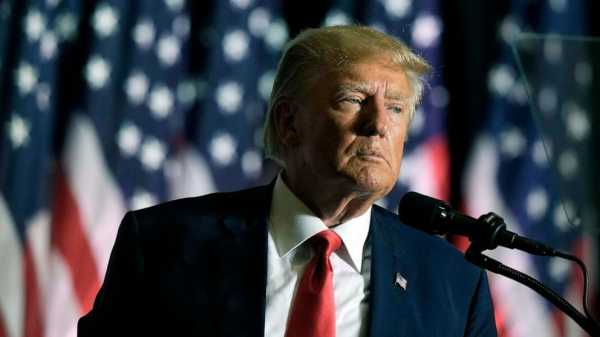
Former President Donald Trump speaks during a rally, July 7, 2023, in Council Bluffs, Iowa.Charlie Riedel/AP, FILE
Some of those who have been most critical of Trump also appear to be having the hardest time catching on.
Former Arkansas Gov. Asa Hutchinson has been calling for Trump to drop out since his first indictment, but Hutchinson remains tens of thousands of donors short of even qualifying for the first GOP debate, scheduled for Aug. 23 in Milwaukee.
Pence has also not yet garnered the 40,000 individual donors he will need to make the debate.
Former New Jersey Gov. Chris Christie, who has been public and outspoken about Trump's flaws, has qualified while surging in some early states. But he has also acknowledged that going after Trump has probably hurt his popularity among Republicans. One recent poll showed a majority of Republicans have an unfavorable view of him, while just 18% have an unfavorable view of Trump.
"It's natural, right?" he recently told reporters in New Hampshire. "Because I'm the one out there going after Donald Trump. And if a majority of people still like him, and you're going after him, it takes time to break through on that stuff."
A few other candidates are moving closer to questioning Trump's political viability, though they're doing so in fits and starts. DeSantis recently floated the idea of pardoning Trump under the reasoning that "to have a former president that's almost 80 years old go to prison, that is not good for this country."
Nikki Haley, Trump's former United Nations ambassador, condemned Trump's actions in the immediate wake of Jan. 6, saying just a week after the attack that "he's lost any sort of political viability." But she has since backtracked far enough to say she would support him as the 2024 nominee and would be inclined to pardon him if she becomes president, while also warning of what it will mean to have Trump and his "drama" dominate politics for another cycle.
"The rest of this primary election is going to be in reference to Trump," Haley said on Fox News last month. "It's going to be about lawsuits, it's going be about legal fees, it's going be about judges and it's just going to continue to be a further and further distraction."
There are few signs that Republicans are any more ready to dump Trump than they were right after Jan. 6. In an ABC News/Washington Post poll taken just days after the assault on the Capitol — while Trump was still in office — a striking 66% of Republicans said they believed Trump acted "responsibly" in the aftermath of the election.
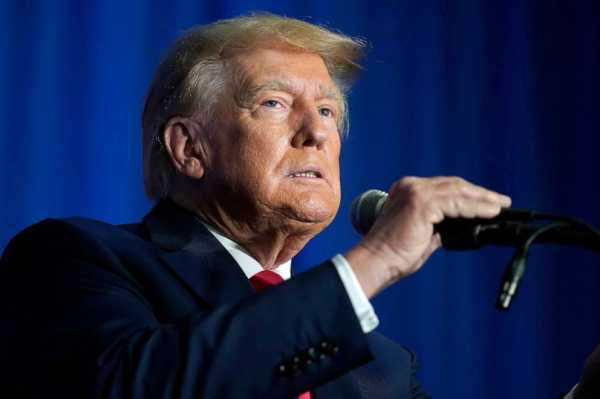
Former President Donald Trump speaks at the New Hampshire Federation of Republican Women Lilac Luncheon, June 27, 2023, in Concord, N.H.Steven Senne/AP, FILE
One impeachment, dozens of hours of Jan. 6 testimony that was highlighted in Congress and two-and-a-half years later, many Republicans not only see Trump as their champion but indicate they don't see his potential legal culpability as a significant liability. In a Monmouth University poll out last week, Trump led DeSantis by more than 30 points, and 69% of Republicans said Trump was either "definitely" or "probably" the strongest candidate to take on President Joe Biden.
Prominent outside groups are among the most vocal in trying to push Republicans away from Trump, reflecting a sentiment more prevalent among deep-pocketed donors than rank-and-file voters.
Americans for Prosperity, the main political arm of the Koch brothers' network, is starting to spend a promised $70 million to push for a GOP nominee other than Trump.
"The only way Biden wins is if we nominate Trump again," one early ad from the group states. "The American people are ready to move on."
It was easy to imagine, in Jan. 6's shadow, that the Republican Party felt the same way. Many GOP leaders all but anticipated this day: Future House Speaker Kevin McCarthy said at the time that Trump "bears responsibility" for the attack on Congress, while Senate GOP leader Mitch McConnell said there is "no question that President Trump is practically and morally responsible for provoking the events of that day."
But as a political force, Trump is stronger than he was in January 2021, and stronger even than he was six months ago.
The reason is simple: Republican voters want him right where he is, even if the legal system has other plans.
Sourse: abcnews.go.com
